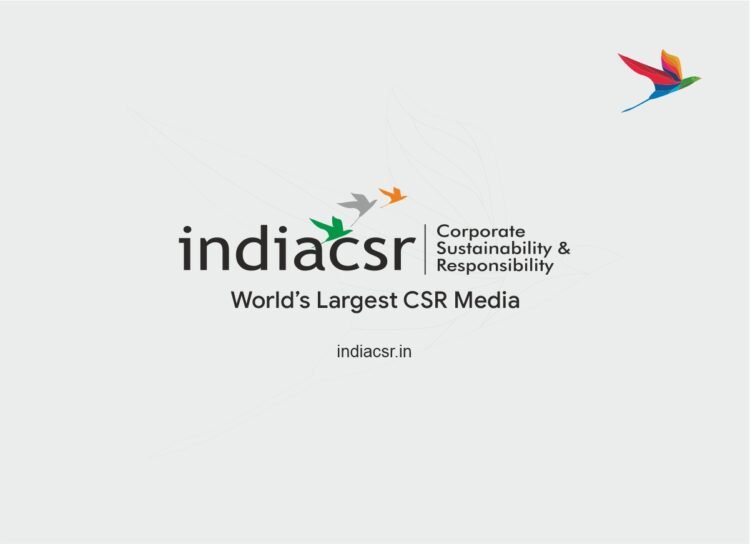By Suresh Kr Pramar
The Government of Madhya Pradesh is likely to import Ghost Busters to fight the growing farmers suicides in the state. The idea sprouted after the Madhya Pradesh Home Minister, Bhupendra Singh, in a written reply to a question in the state Assembly, said that the 418 farmers who ended their lives, in the last three years, did so because they were “possessed by Ghosts”.
Farmers Suicides in Madhya Pradesh/Chattisgarh
The Minister and his government refuse to acknowledge that farmers were committing suicide in the Madhya Pradesh. According to a report on Huffpost, the Director of Agriculture has said “ there were no farmer suicides in Madhya Pradesh. The department has not received any report.” The attitude of the government is that they cannot be held responsible for deaths that occur in families engaged in agricultural activities. The response of officials in Chhattisgarh is the same. An agricultural extension officer has said: “We don’t have any record of farmers’ suicide cases.”
Farmers Suicides in Madhya Pradesh/Chattisgarh
| Year | Farmer Suicides | |
| 1997 | 2390 | |
| 1998 | 2278 | |
| 1999 | 2654 | |
| 2000 | 2660 | |
| 2001 | 2824 | |
| 2002 | 2578 | |
| 2003 | 2511 | |
| 2004 | 3033 | |
| 2005 | 2660 |
Alarming Statistics
Despite denials the plague of farmers suicides has hit the state and the country hard. Five states, Maharashtra, Madhya Pradesh, Chhattisgarh, Andhra Pradesh and Karnataka, account for two-thirds of farmers’ suicides. These states, together, account for one-third of the total population of the country.
Escalating Trends
According to Professor K Nagaraj of the Madras Institute of Development Studies (MIDS), the number of farmers taking their own lives each year shot up dramatically from under 14,000 in 1997 to over 17,000 in 2005. While the rise in farm suicides has been on for over a decade, there have been sharp spurts in some years. For instance, 2004 saw well over 18,200 farm suicides across India. Almost two-thirds of these were in the Big Four or ‘Suicide SEZ’ States. The year 1998, too, saw a huge increase over the previous year. Farm suicides crossed the 16,000 mark, beating the preceding year by nearly 2,400 such deaths.
Impact on India
P. Sainath, who specializes on rural reporting, has said of the 1.5 lakh Indian farmers who took their own lives between 1997 and 2005, nearly two-thirds did so in the States of Maharashtra, Andhra Pradesh, Karnataka, and Madhya Pradesh (including Chhattisgarh). Nagaraj says “the trend for this group of States looks quite dismal. All four have, over the nine-year period, shown an ascending trend in farmers’ suicides.
Farmers’ suicides in India, 1997–2012 in numbers
| SL. | Year | Farmer Suicides | Percent age of Total Suicides |
| 1 | 1997 | 13,622 | 14.2 |
| 2 | 1998 | 16,015 | 15.3 |
| 3 | 1999 | 16,082 | 14.5 |
| 4 | 2000 | 16,603 | 15.3 |
| 5 | 2001 | 16,415 | 15.1 |
| 6 | 2002 | 17,971 | 16.3 |
| 7 | 2003 | 17,164 | 15.5 |
| 8 | 2004 | 18,241 | 16.0 |
| 9 | 2005 | 17,131 | 15.0 |
| 10 | 2006 | 17,060 | 14.4 |
| 11 | 2007 | 16,632 | 13.6 |
| 12 | 2008 | 16,196 | 13.00 |
| 13 | 2009 | 17,368 | 13.7 |
| 14 | 2010 | 15,964 | 11.9 |
| 15 | 2011 | 15,652 | 11.9 |
| 16 | 2012 | 16,272 | 11.9 |
| Total | 1997-2012 | 2,64,388 | 14.2 |
Notes: 1. Chhattisgarh and Puducherry reported zero farmers’ suicides in 2011. In 2012, Puducherry reported zero farmers’ suicides, Chhattisgarh reported four farmers’ suicides and West Bengal had “not reported” farmers’ suicides. Source: NCRB, Accidental Deaths and Suicides in India,
Government Response
Ghosts or no ghosts farmer suicides have become a regularly feature in newspaper headlines. According to one study almost every day 16,500 farmers commit suicide across India. Like Bhupendra Singh, those that rule the destiny of the country at present, seem unconcerned about this frightening trend. They are focused on Make In India in the hope that we will soon outstrip China as the manufacturing hub of the world.
Agricultural Dilemma
While several thousand crores are being sacrificed at the altar of industrialization, by way of concessions and subsidies, the farmers, the backbone of any nation, are being starved of finance essential to improve the yields from his land. My own brief research in Yavatmal, the suicide district of India, has revealed that the main cause of suicide was the failure of crops resulting in the inability to repay loans to financial institutions and local money lenders.
Deceptive Practices
Blinded by the promise of higher yields with the use of hybrid seeds the farmer invest heavily in procuring seeds and fertilizers, mostly on credit from the local trader/money lender. While the costs were many times higher than the local seeds the farmers were not informed about the planting techniques. The traders, in their selfish interests, recommended higher doses which instead of bringing in joy and happiness with increased yields brought in misery, suffering and suicide with failure.
Socio-Economic Disparities
The irony was that a majority of the farmers who departed the world had outstanding loans amounting to just Rs 10,000. The farmers, it would seem, have a better sense of morality than the likes of the King of Good Times Vijay Mallya, who has fled the country owing the banks over Rs 5000 crores. According to reports there are several other well known industrialists who owe banks several crores.
Government’s Misplaced Priorities
While the government pampers the wealthy businessmen with all manner of goodies, financial and otherwise, it starves the farmer of funds necessary to enhance the produce from his land and thereby improve the living standard of his family. To hoodwink the famers it makes hollow promises like the one the Finance Minister presented in his recent Budget. In what can be dubbed as a cruel joke on the peasant the Budget was present as a pro-farmer, pro rural budget which it said would take steps to ensure that the incomes of farmers would double by 2022.
Doubtful Promises
In a recent article P.Sainath has said “Someone’s income will surely double by 2022. But, contrary to the crazy claim, it won’t be the farmer but India’s new dollar billionaires. ‘Pro-farmer’ budget should ring a warning bell. It is usually followed by further handing over of agriculture to agri-business. And terrible times for farmers.”
Economic Disparity
The farmers, who were promised increased MSP by the BJP in its 2014 poll campaign have been betrayed, are unlikely to find their incomes doubled. India’s 111 dollar billionaires listed in the latest Hurun report are mostly likely to be the ones who will corner the benefits. Their wealth grew by 25 per cent in a single year.
Neglecting Agriculture
Writing in Yojana, the government publication, C.S.C Sekhar, Associate Professor, Institute of Economic Growth, Delhi University has pointed out “there has been a distinct slowdown in investment in agriculture in recent years. Some of the deceleration in growth can be attributed to a slowdown in investment. The Budget (this year) is lacking in effective proposals/incentives to states to do more in agriculture.”
Misguided Policies
Investment in agriculture has slowed down because the government in its wrapped wisdom feels that industrialization at the cost of agriculture development would make the country a number one developed country. What has in actual fact happened is that the government has diverted massive investments for industrialiastion. Funds which have been carved away from investments meant for agriculture and social services.
Socio-Economic Impact
According to Sainath every year the government has been offering crores upon crores to industries in the shape of concessions and subsidies. He has pointed out that since 2004-05 well over Rs 42 trillion, by way of tax concessions, subsidies etc, have been written off. “In the total amount foregone to the better-off under corporate income tax, excise and customs duty since 2005-06, you could run the NREGA for about 109 years on present levels. You could transform tens of millions of lives for the better.” This kind of money if available for investment of agriculture would have brought India into a level of economic development which would have outstripped the developed countries of the world.
Failed Governmental Initiatives
Farmers, and agriculture, have always been at the wrong end of the stick. Schemes created for farmers are implemented mindlessly as a result of which the benefits flow not to the farmers but middlemen and money lenders. Government efforts to help the farmers have been niggardly and ineffective because of mismanagement and improper implementation.
Ineffective Relief Measures
A case in point is the Rs.5075-crores special relief packages announced a few years back for beleaguered Vidarbha farmers which failed to provide any relief. CAG’s performance audit of farmers’ packages finds that not only were these packages mindless in conceptualization and “inconsistent with local needs they were tardy in implementation” Result: The money did not help mitigate the gargantuan agrarian crisis or even reduce farmers’ suicides.”
Surender Sud, who specializes on issues relating to agriculture, says that the government response and relief packages are ineffective, misdirected and flawed. Sud says that these packages concern themselves to credit/loan rather than income, productivity and farmer prosperity designed to pay off outstanding principles and interest which helps the money lender.
According to Sud an effective package would be one that will help create reliable and good source of income for the farmers. Debt relief, he says, just postpones the problem. An effective answer for a reliable income would be high yield per acre, irrigation and other infrastructure security.
Since 1991, when the liberation process was started in India, agriculture and agriculture development has been relegated to a very low priority. As mentioned above the stress is on industrialization was accorded the prime position and governments in India bent over backward to attract investments. In doing this they sacrificed the interests of the rural population, farmers and tribal communities.
While funds for agricultural development have been curtailed substantially agricultural extension activities have almost been suspended. Agricultural extension officer are selective in their programmes helping the bigger farmers while ignoring farmers with small and marginal holdings. The small and marginal farmers who went in for hybrid seeds and fertilizers were left to fend for themselves. With little information on the modern agricultural practices required these farmers were doomed to failure increasing their indebtedness and ending up in suicides.
In recent years there is a lot of talk of inclusive and sustainable economic development. For the government these two words ’inclusive’ and ‘sustainable’ are just words to be used to hoodwink the people. In actual fact they call for a development which looks after the welfare of all people, the different stakeholders in society. It is not supposed to be limited to the welfare of the rich and connected, as is being done at present.
Any society which ignores the interests of sections of the society is not likely to be a society which is sustainable. Western societies are experiences the consequences of ignoring the not so rich and not so well connected sections of the society. A handful of super rich in an ocean of poor and deprived cannot sustain for long. Gandhiji cautioned against this when he warned that excessive wealth in the hands of a few will invite brutal reaction from those who feel deprived.
Farmers across the country feel aggrieved Its time we pay greater attention to their needs. These are the ones who toil hard so that food reaches our tables. We owe it to them.
About the author:
Suresh Kr Pramar is a renowned journalist and consultant writing on CSR issues.
You may also like:
- Breaking the glass ceiling and gender equality
- CSR Funds: Kuber Ka Khajana?
- India ESG Summit: Nirbhay Lumde, Head – Sustainability & CSR Asia Pacific SBU, CGI to be a guest speaker
- Corporate Social Responsibility in India: A Practitioner’s Perspective – A book by Nirbhay Lumde
- Social Audit in the Context of CSR by Nirbhay Lumde






















